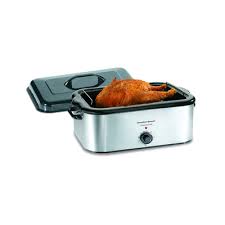Budgeting just makes good financial sense, even when you have more than most. But when your income is limited, it becomes even more important that you budget. Not only will you be able to meet your basic needs with the right budgeting, but you’ll also be able to get the extras you need to make your home and your family safe and healthy.
It’s important that you include categories into your budget to accommodate both small and large health needs. You can set aside smaller sums each month to work toward those larger goals, such as seeing a specialist once a year or buying that big piece of medical equipment you know you’ll need.
Here are some of the things you may end up needing that you should include in your budget and savings plan:
Home Health Aides
Maybe you have elderly parents that are going to live with you, or maybe you are entering your Golden Years yourself and are starting to plan for that. You may need to budget for home health aides like an adjustable bed, a stair lift, or handrails.
You can easily afford these things by including a long-term line item in your budget. Put a little aside each month into an interest-bearing savings account, and you’ll have what you need over time. You can also look for affordably priced options or companies that have financing plans. For example, Easy Climber offers both stair lifts and home elevators for affordable prices. With a little research, you can find good deals on the things you need so that you save as much as you can.
Medications
You might need monthly medications for ongoing health issues, or you might only need medication when you’re sick. Prescription medication can cost a few dollars if you have insurance, or it can cost several hundred or even several thousand dollars if it’s a specialty medication, even if you have insurance.
The easiest way to save on medications is to do everything you can to stay healthy, including eating a healthy diet and getting regular exercise and sleep. But even if you do that, it’s no guarantee that you won’t get sick. You can save money on your prescriptions by ordering them for three months at a time instead of one month or by using a prescription club that offers bulk discounts for members. You can also ask your doctor for samples. Be sure to include a little in your budget each month for unexpected expenses, such as medications for when you get sick.
Flu Shots
You need your flu shot. Even if the flu doesn’t present serious complications for you, it can certainly weaken you for several weeks, causing you to feel miserable and lose a lot of time off work. Plus, if you get the flu, you are putting those around you at risk of getting it. If you are around any elderly people, babies, or those who have compromised immune systems, you are endangering them if you get the flu. If those people get the flu, it could be deadly.
You can easily save money on your flu shot by doing a bit of research. Your employer or local health department may offer the shot for free. However, if you do have to go somewhere and pay for it, you should just shop around to find out who is offering the best deal. Places like wholesale clubs and big box stores usually offer the best prices, but you might find a better deal if you look. Since the cost is so low and is only once a year, you should be able to easily include this in your winter budget.
Staying healthy and staying on a budget are not mutually exclusive things. If you think ahead about the things you will need, you can plan for them in your budget. You can also save on items by shopping at the right places or taking advantages of different buying options. Plus, you should always have savings set aside for those things that might come up that you don’t expect. Follow these tips, and you’ll have the basics covered.






